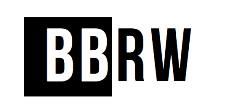A “quiet crisis” is unfolding in workplaces across Australia as businesses navigate a new era of employment — one marked by shifting worker expectations, rising living costs, and the lasting impact of pandemic-era changes. Experts warn that employers who resist adapting may face serious repercussions in the near future.
The pandemic dramatically reshaped the way people work, with remote and hybrid models becoming commonplace. While lockdowns and distancing measures have ended, many of the workplace changes introduced during that time appear to be here to stay.
Despite a recent uptick in return-to-office mandates, many Australian employees are holding firmly to the flexibility they’ve gained. For a growing number of office workers, hybrid or remote work has become the new normal.
A recent report from HR and payroll company Deel — the 2025 Australia Payday Expectations Report — surveyed over 1,000 full-time Australian office workers. The findings reveal a growing divide between what employees expect and what their employers are prepared to offer.
Shannon Karaka, Deel’s Country Leader for Australia, said the data points to a quiet but serious workplace crisis. “This report highlights the urgent need for businesses to evolve — from upgrading payroll systems to supporting employees’ financial wellbeing,” Karaka said.
He added that today’s employees want the same speed and customisation in workplace benefits as they get from modern apps. Increasingly, they see payroll not just as a process but as a service — one that offers real-time access and more control over earnings.
Key insights from the report include:
- 38% of respondents want to be paid more frequently than they currently are — rising to 50% among financially struggling workers and 55% among those in households earning under $50,000.
- Many also want flexibility in how they are paid: 60% said they would consider receiving part of their salary in non-traditional forms, such as stocks or equity.
- Gen Z workers are most open to alternatives, including cryptocurrency as a form of compensation.
- A majority of respondents expressed a desire to customise their pay and benefits, with 64% willing to trade paid leave for higher wages.
- Despite the push for financial flexibility, work-life balance remains critical, with two-thirds ranking flexible hours or remote work among their top job benefits.
- One in four said they would accept a lower salary in exchange for more flexibility.
The data paints a clear picture: Australian workers are increasingly seeking autonomy — not just in where and how they work, but also in how they are compensated. As the gap between employer offerings and employee expectations widens, businesses face growing pressure to modernise or risk losing talent.
























